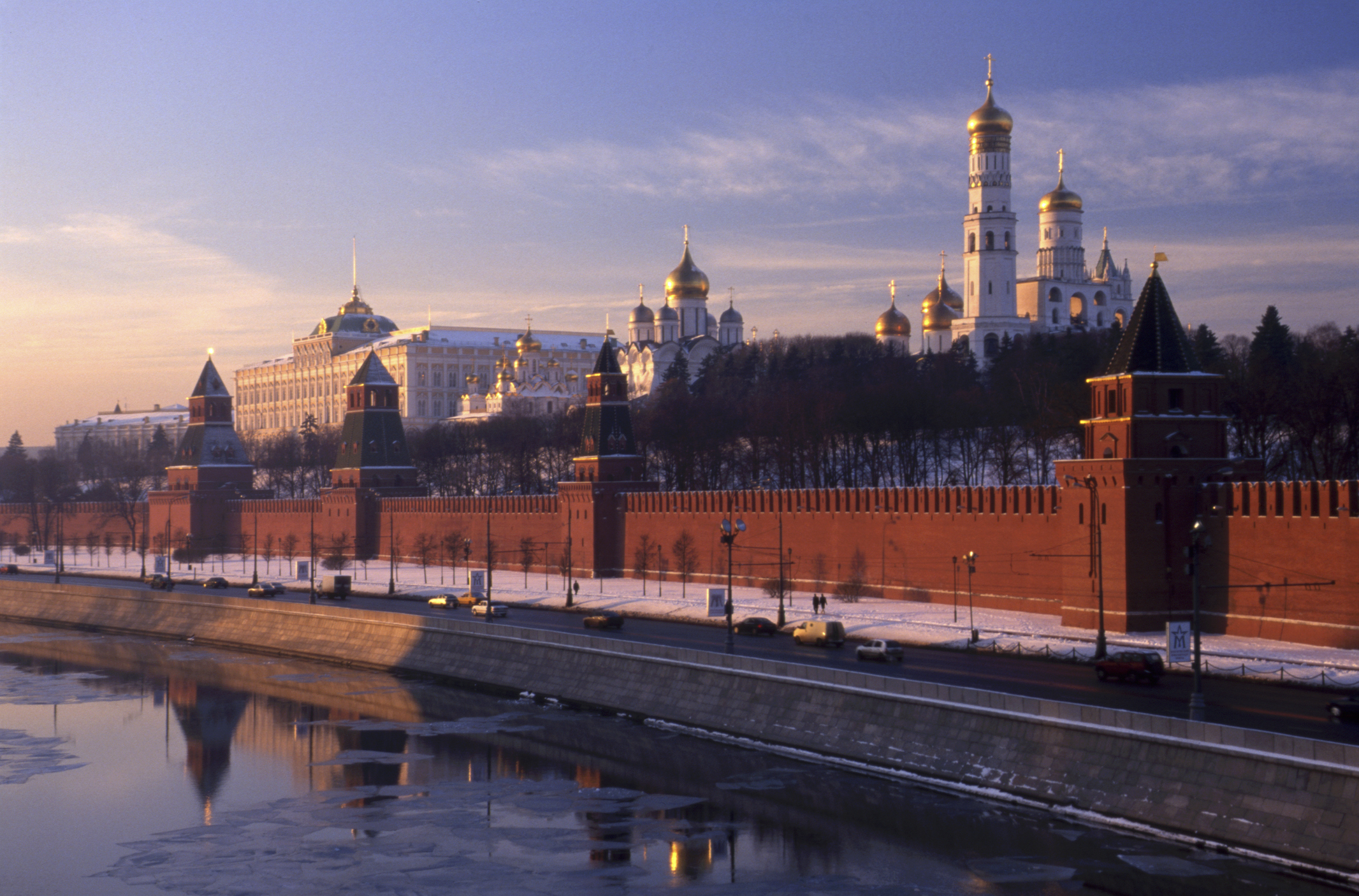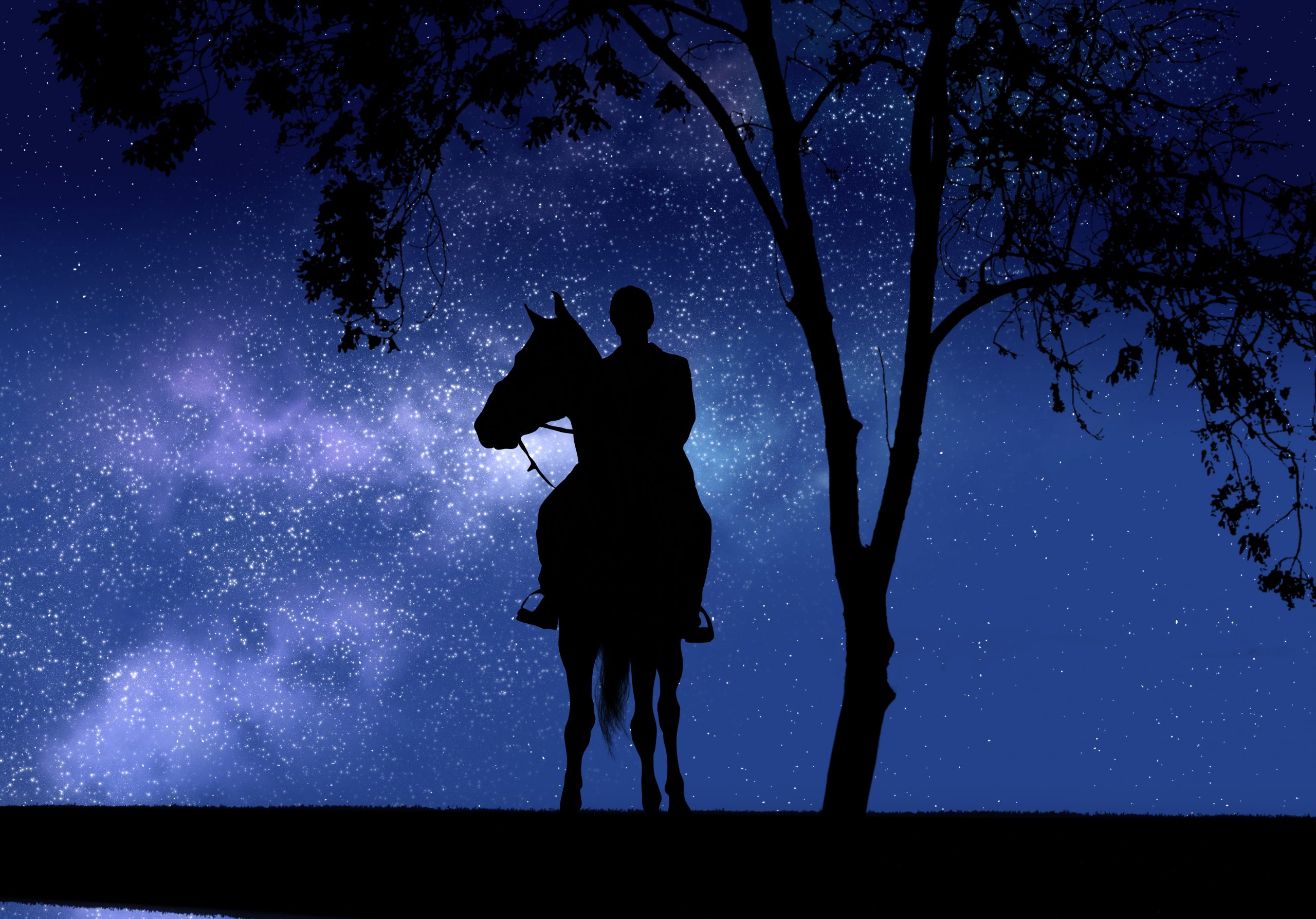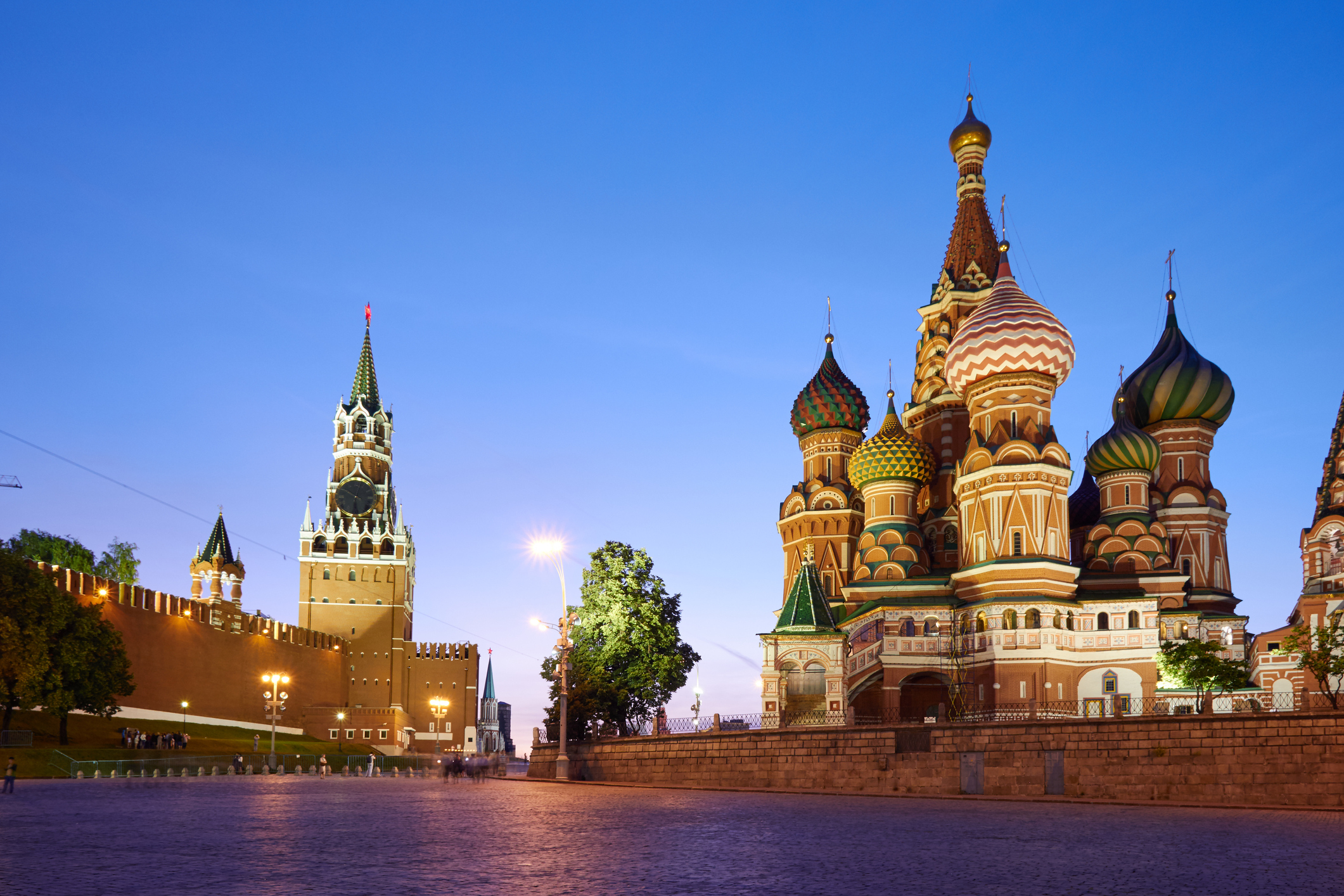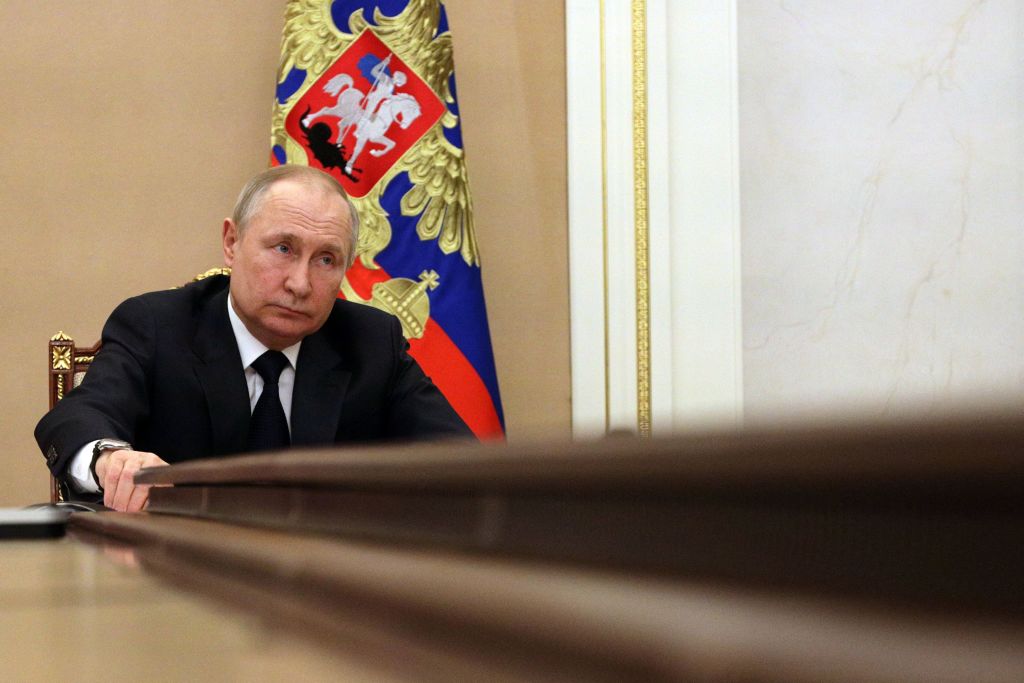To stay free, you must learn to be courageous.
Red Tears

The Russian people were the foremost victims of the Soviet regime.
Aleksandr Solzhenitsyn was undoubtedly the greatest anti-totalitarian writer and moral witness of the twentieth century, a passionate yet moderate and humane Russian patriot who saw his own people as the principal victim of the grave threat to humanity that was Communist totalitarianism. In The Gulag Archipelago, first published in the West in the final days of 1973, Solzhenitsyn took aim at an implacable ideology, Marxist-Leninism, that justified tyranny and terror in a truly unprecedented way. Ideology, as Solzhenitsyn called it, attacked the non-negotiable pediments of free and civilized life: private property within proper moral and legal limits, the family as the bosom of human affections, religion and the moral constraints that accompany it, and the nation as an essential part of God’s providential design. It was far worse than an ordinary, non-ideological authoritarian regime (of the kind Russia has seen for much of its history) since totalitarianism’s war on human nature necessitated violence and lies on a massive scale.
Solzhenitsyn, the Russian patriot par excellence, saw Communism as both anti-Russian and anti-human, destructive of elementary liberties and at odds with humane national loyalty and with the distinctions between truth and falsehood, and good and evil, that define the life of the soul and true moral integrity. The great Russian writer repeatedly lambasted the false identification of love of country with the zealous and counterproductive quest for imperial domination, whether Tsarist or Communist. HIs program, if he had a program for post-Communist Russia, centered around repentance for the crimes of Communism, self-limitation, the gradual development of self-government from the bottom up (“the democracy of small spaces” as he called it), and a patient rekindling of Russia’s best and most salutary spiritual traditions. Solzhenitsyn asked for no special privileges for the Orthodox religion but hoped it would play a crucial role in the healing of the Russian soul. Alas, this admirable and eminently sensible call for Russian national and spiritual renewal was castigated as autocratic and imperialistic by those mendacious critics, Western and Russian alike, intent on disparaging Solzhenitsyn as some kind of Russian ayatollah. They accused Solzhenitsyn of advocating positions he had emphatically repudiated.
When Solzhenitsyn was first exiled to the West in February 1974, he longed for a grand alliance between Russian patriotism properly understood—moderate, humane, and anti-totalitarian—and a West that was still insufficiently sensitive to the dangers posed by Communist totalitarianism in all its forms. But, as he put it in Between Two Millstones, his instructive and artfully composed two-volume account of his twenty years of Western exile (eighteen of them spent in small town Vermont), he was soon struck by the inability of even anti-communists to adequately distinguish between things Russian and things Soviet. For far too many, historic Russia, the so-called “Russian bear,” was the enduring enemy of the West. Western intellectuals and influential Russia-area specialists, aided and abetted by secular and left-liberal Russian emigres, attacked Solzhenitsyn for “messianic pretensions” as if love of country was coextensive with imperial pretensions and political oppression.
More fundamentally, elites in the West, on the Left but also many on the Right, too, confused the “Communist plague” with “a Russian plague,” as Solzhenitsyn strikingly put it in Between Two Millstones. As the Russian people continued to suffer “under the Soviet boot,” Russia became indistinguishable in the Western mind from its Communist oppressors. In this crude historical and moral reversal, Solzhenitsyn saw something “extremely dangerous” for both Russia and the West. Self-hating Russian emigres and the dominant opinion in the Western world alike had succeeded in “sticking all the Soviet abominations onto the face of Russia.” In a lengthy, thoughtful, and passionate essay that appeared in the April 1980 issue of Foreign Affairs, entitled “The Mortal Danger,” Solzhenitsyn took aim at this “error of the West,” beginning with the omnipresent linguistic identification of Russia with the Soviet Union. And the Russian Nobel laureate reiterated his opposition to the identification of Russian patriotism with Soviet empire as well as his call for national self-restraint as the first step in genuine national renewal. After sixty years of communism Russia was “gravely ill.” Hovering over an unprecedented moral, cultural, spiritual, political, and economic abyss, the Russian people desperately needed to turn inward and begin the long, hard descent from the “icy peaks” of totalitarianism. There would be no easy path back to normal life, and no ready formulas for doing so. The rule of law, intellectual and religious liberty, and the repudiation of the murderous ideological Lie were the first indispensable steps. Democracy, if it came, would come later.
Readers of The Gulag Archipelago, at least those who made it to the third volume of that massive work, will remember Solzhenitsyn’s remarkably judicious approach to the “Ukrainian question.” Solzhenitsyn, half-Ukrainian himself, had always hoped that Russia and Ukraine could remain bound to each other in light of their millennial-old historical and spiritual ties. But as he recounts in this discussion near the beginning of the third volume of The Gulag Archipelago, he had already discovered in the camps how bitter Ukrainians were about their continuing association with historic Russia. “Russia and the Ukraine” were “united in {Solzhenitsyn’s} “blood…heart…thoughts.” But in light of imperial Russian heavy-handedness and the much worse cruelties of Soviet rule, Ukrainian nationalism had grown fiercer and more aggressively anti-Russian. “The feelings of the whole people are now at white heat.’” Solzhenitsyn did not believe that Ukraine’s problems would all be “solved by succession.” But the choice must be left to Ukrainians, whether federalists or separatists. That was the path of moral realism and political good sense.
As we all know, Ukraine went its separate way in 1991 with the dissolution of the Soviet Union. But Ukrainian nationalists did not take into account the crucial caveat made by Solzhenitsyn in both The Gulag Archipelago (completed in 1968) and 1990’s Rebuilding Russia: the capricious “Leninist” borders inherited from the Soviet Union must not be taken for granted. To do so was to invite more acrimony and deadly future conflicts. Many Ukrainians identified as Russians and lived in regions that had been ceded arbitrarily to Ukraine by the Soviet state at a time when borders hardly mattered (that includes Crimea and much of the Donbas region). Solzhenitsyn astutely remarked: “a plebiscite in each province, and afterwards a helpful and considerate attitude to those who wish to move, may be necessary. Not all of the Ukraine in its present official borders is really Ukrainian. Some of the left-bank provinces undoubtedly feel drawn to Russia.” To reiterate, this judicious analysis comes from 1968.
Today, Ukraine remains bereft of the federal principle and has become a unitary ethnic state. President Zelensky, the “peace candidate” in the 2019 election, almost immediately reneged on his campaign promises to implement the Minsk I and II agreements, which had committed Ukraine to give greater autonomy and self-government to the eastern part of the country, a step that might have avoided disaster. Zelensky was obviously under immense pressure from the extreme nationalist camp in Ukraine, the camp that has dominated Ukrainian political life since the Maidan Revolution of 2014. In a West increasingly gripped by anti-Russian fervor, especially since the deeply troubling and ill-advised Russian invasion of Ukraine on February 24, 2022, all this has been driven down the memory hole. An ethnic Manicheism increasingly prevails, accompanied by a great deal of indiscriminate Russophobia. Russia is once again coextensive with the Soviet Union, the dark and implacable enemy of civilization and the West. To vigorously challenge this presupposition is to risk condemnation and even cancellation.
Since the outbreak of the war, the crimes of Communism are now almost uniformly attributed to Russian barbarism. Russians are always seen as executioners and never as victims, even of the Communism that destroyed the flower of the nation. In the aforementioned Rebuilding Russia, Solzhenitsyn already noted that, while in the West, he came across many Ukrainian nationalists who argued “that Communism is a myth.” In their view, it was “Russians who are seeking world domination.” Solzhenitsyn also lamented the misguided “Captive Nations” Resolution passed by the American Congress in 1959. It blamed the crimes and misdeeds of Communism on Russia, not the Soviet Union, and even held “the Russians” responsible for the seizure of China and Tibet. Solzhenitsyn was flabbergasted by such historical ignorance and disdain for a prostrate Russia.
In contrast, Solzhenitsyn insists in Rebuilding Russia that Communism was anything but a “myth”: Russians and Ukrainians alike “got a firsthand taste” of applied ideology in the “torture chambers of the Cheka from 1918 onward.” Solzhenitsyn adds that twenty-nine “drought-ridden” Russian provinces succumbed to “murderous famine” in 1921 and 1922 after the forcible requisition of grain that characterized the punitive and cruel policies of “War Communism.” This famine took over five million lives, and, unlike the disaster of 1932-1933, is all but unknown in the contemporary West. And with his characteristically sardonic voice, Solzhenitsyn concludes by suggesting that this was “the same myth that later thrust the Ukraine into the similarly pitiless famine of 1932-1933.”
It should be noted that one-third of the population of Kazakhstan died in the same famine. This massive assault on life and liberty was caused by what Solzhenitsyn calls “communist-imposed collectivization forced upon us all by whip and bullet.” The Bolsheviks’ goal was thoroughly ideological: to eliminate the independent property-owning peasantry whom they pitilessly derided as “kulaks” or exploiters. Today, next to nobody recalls the Russians and Russian Cossacks who similarly perished during the same collectivization-induced famine in the north Caucasus, the Kuban region, and parts of the Volga region. Ukrainians are absolutely right to honor the victims of the Holodomor, one of the worst crimes in human history. But for many today, this crime has falsely transmogrified into ethnic genocide and not the ideological democide that it was and remains. Solzhenitsyn’s hope that that Russians and Ukrainians would be “bonded by this common bloody suffering” has come to naught and Communism seemingly gets a free pass. Anti-Communists in the West should think twice before endorsing such a tendentious narrative.
Contrary to legend, Vladimir Putin (whatever his other demerits) is not a Marxist-Leninist, as a well-intentioned but misguided article in National Review recently claimed. Putin is far more a “White” than a “Red.” Nor is the fascist ideologue Alexander Dugin his inspiration in matters of politics or strategy. In his speeches and addresses, Putin regularly invokes White or anti-Communist thinkers and heroes such as Stolypin, Solvoviev, Il’yin, and Berdyaev, rather than Marx or Lenin. The Gulag Archipelago remains required reading in Russian high schools. But there is no doubt that many in Putin’s nationalist coalition, and increasingly Putin himself, see Western criticism of Soviet crimes as really aimed at “diabolizing” Russia herself, as Putin put it in a 2017 interview with Oliver Stone (I am indebted to the French Russianist Nicolas Werth for many of these details). Moreover, the omnipresent cult of the “Great Patriotic War” discourages any sustained criticism of Stalin’s calamitous conduct of the Russian Second World War. The Vozhd cruelly sent millions of ordinary Ivans to their deaths with little or no concern for lives lost. And Stain’s murderous assault on the officer corps in the years immediately prior to the outbreak of the Second World War (as well as the infamous and misguided Hitler-Stalin Pact of August 23, 1939) are barely alluded to in the most recent Russian history manuals.
Solzhenitsyn, to his credit, stood out in the Russian patriotic camp in his forthright rejection of the premises underlying the myth of the Great Patriotic War. He freely compared the Soviet and Nazi regimes and saw Hitler as a “pupil” in decisive respects of the world’s first experiment in totalitarianism. He refused to give Stalin undeserved credit for the heroism displayed by the oppressed Soviet peoples between June 1941 and May 1945, even as the gulags continued to grind down the bodies and souls of millions of Soviet citizens. After the Second World War, hundreds of thousands of Soviet prisoners of war, who barely survived the depravities of confinement in German prisoner of war camps, were sent to the gulag for the crime of having been captured in the first place. There is indeed something too residually Soviet about this myth of the Great Patriotic War which grounds and legitimizes Russian patriotism in the era of Putin.
We can add to this the recent dissolution of the human rights organization Memorial, the great chronicler of the crimes of the Soviet period, a dissolution confirmed by Russia’s highest court on December 29, 2021. This was an assault on truth, and the cause of Russian anti-totalitarianism. It was strongly, and appropriately, denounced by Solzhenitsyn’s widow Natalya Solzhenitsyna. To be sure, Putin hardly defends the crimes of the Soviet period and does not ignore them or justify them. But Memorial received funds from the West and was thus suspected of “diabolizing” eternal Russia. It had also forcefully condemned Russian human rights abuses which did not win it any favors in government circles.
Today, Russia, Ukraine, and the West are increasingly united in a unilateral identification of things Russian and Soviet. We are back to square one. This grave “error,” as Solzhenitsyn called it, risks giving Communist ideology a free pass, and retards Russia’s political development while poisoning East-West relations. It is time to reconsider Solzhenitsyn’s strikingly prescient warnings about the dangers of blaming Russia for the Red plague. That is the beginning of wisdom in returning Western reflection about Russia to a semblance of sanity and moderation. And such a path would demand honest soul-searching on the part of Russians, too, a willingness to reject lies however reassuring thy may be.
The American Mind presents a range of perspectives. Views are writers’ own and do not necessarily represent those of The Claremont Institute.
The American Mind is a publication of the Claremont Institute, a non-profit 501(c)(3) organization, dedicated to restoring the principles of the American Founding to their rightful, preeminent authority in our national life. Interested in supporting our work? Gifts to the Claremont Institute are tax-deductible.
Understanding our longstanding confusion
Time is a weapon of war.



